Early this year, Gosab Group, a provider of nursing care service in Germany owned by Nigerian-born entrepreneur Godfrey Chukwuemeka Evurulobi, took over the management of an old people’s home in Pulheim-Stommeln, a small town in North Rhine-Westphalia.
Before taking over the nursing home from Caritas, the Gosab Group – comprising Gosab Personalmanagement & Consulting, Gosab Care GmbH and Gosabflex GmbH and with branches in Bergish Gladbach, Bonn, Düsseldorf, Frankfurt, Munich and Hamburg – had only provided (and still provides) qualified carers to those who need their services, including individuals and aged-care facilities.
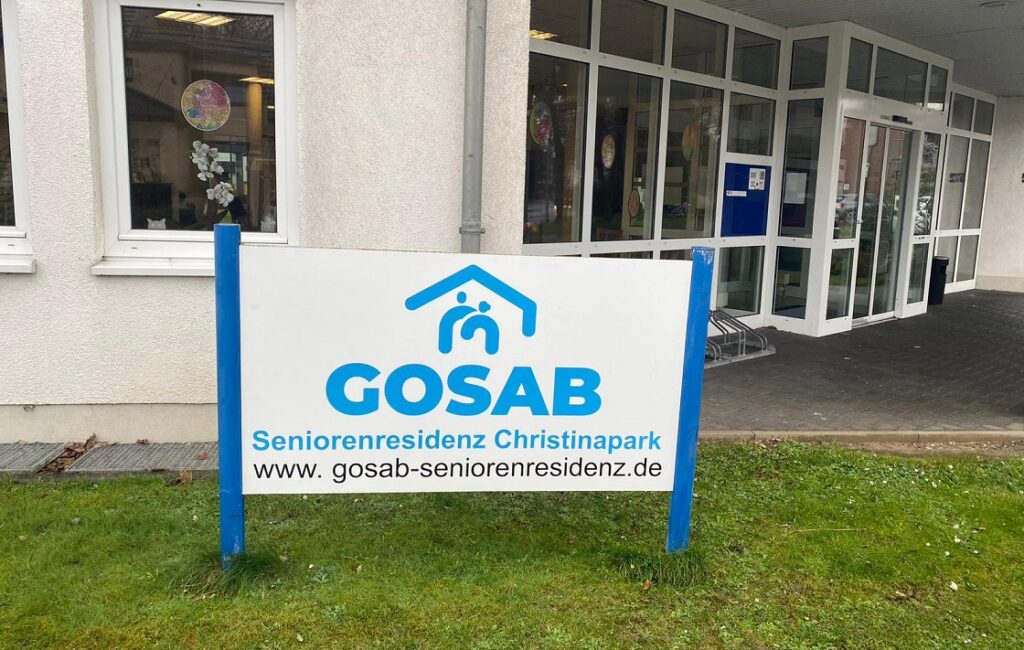
Now, with the Gosab Seniorenresidenz Christinapark, Gosab has begun to run care its own care facility for the elderly as well.
The home, with its residential, nursing and leisure facilities, offers residential and care services through in-patient care and short-term care for those who temporarily need help.
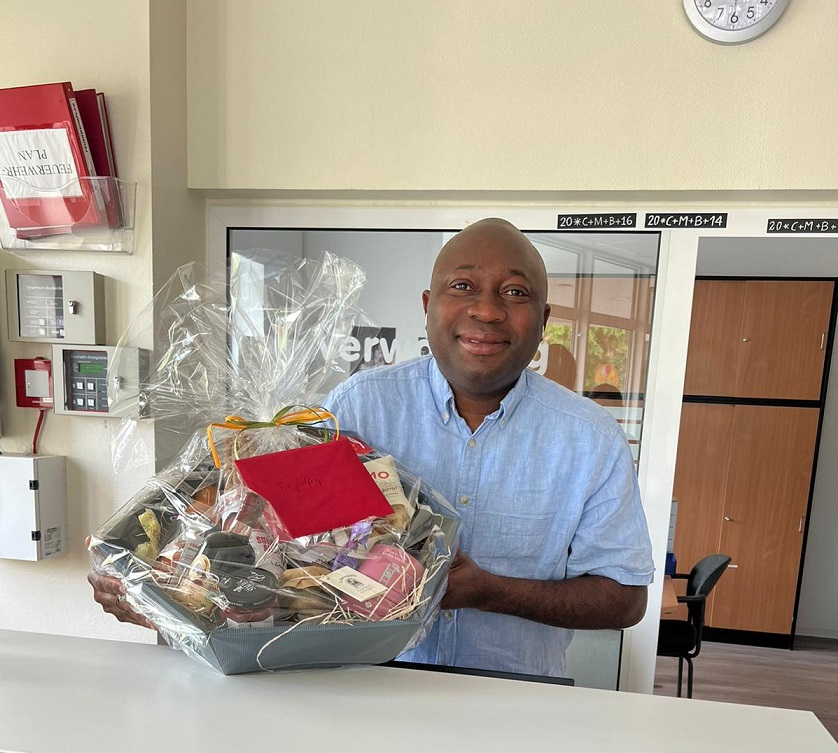
Situated in a serene countryside environment, the Gosab Seniorenresidenz Christinapark boasts of in-house restaurant and café, a sun terrace and several common leisure rooms, creating a pleasant, homely ambience for a contented life in old age for its inmates.
Carers help people who are physically or psychologically incapable of taking care of themselves on an everyday basis to live as independently and autonomously as possible and in dignity. Nursing care is therefore very critical to Germany’s health care sector due principally to the country’s ageing society.
With the Gosab Seniorenresidenz Christinapark, the Gosab Group, with a workforce of about 320 care professionals, has entered a new phase in its success story in Germany’s care sector.
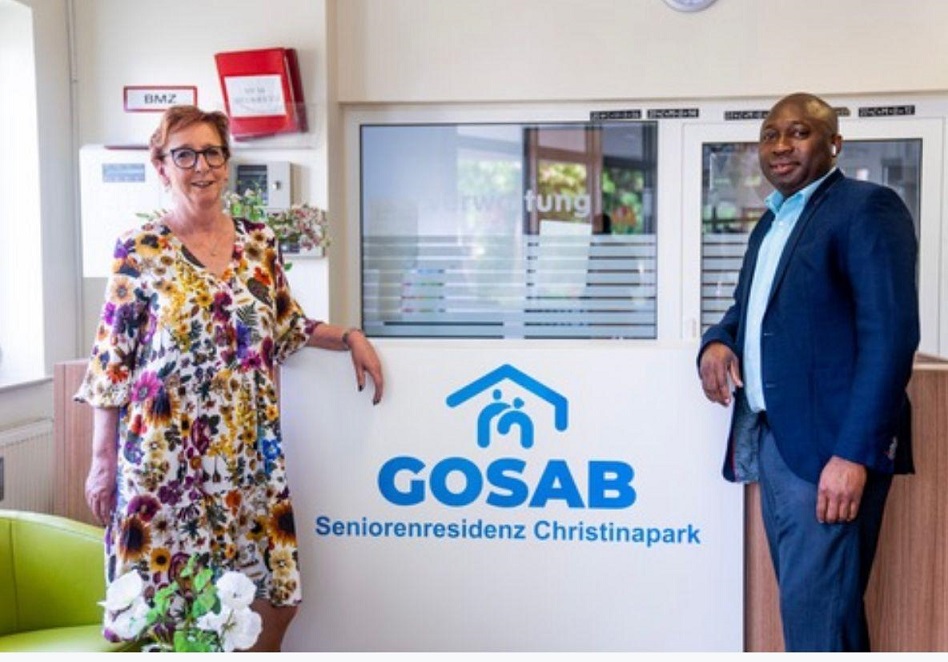
Godfrey Evurulobi, a graduate of international business at the University of Applied Sciences Cologne, believes that the care sector offers enormous possibilities for Africans in Germany. “There is always job because of the demographic changes in Germany,” he said.
And to enable fellow Africans profit from his experience in the profession, Evurulobi launched the Gosab Care franchise system last year. Through the scheme, interested Africans can ride on the shoulder of the Gosab Group into a business that is bound to continue to grow in leaps and bounds into the future.
A new care home under the Gosab franchise system will open in a major German city early next year, Evurulobi has revealed.
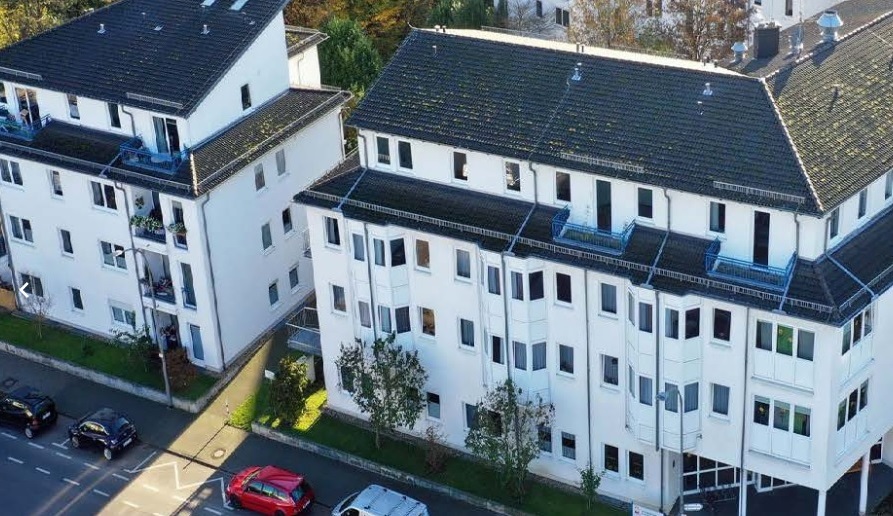
Godfrey Evurulobi founded his first company, Gosab Personalmanagement & Consulting, a recruitment and personnel leasing company, in 2013. And less than ten years on, the Abia State-born entrepreneur runs three thriving companies in Germany’s healthcare sector and provides a shining example that hard work, creativity and tenacity pay.
In an exclusive interview with The African Courier, Godfrey Evurulobi explains why he ventured into the management of care homes and what it entails to run such homes, and he talks about the shortage of care professionals in Germany and how Africans can assess opportunities in the sector:
—
Until now, Gosab has provided care workers to care homes and individuals. Why did you decide to run a nursing home yourself?
The idea of opening a care home has been my dream since I entered the care sector in Germany. This enables us to easily provide our outpatient/mobile care customers a place in a care home when needed. This is important because of the difficulties of securing a place in care homes in Germany.
I also want to give us Africans the opportunities to be trained in the care profession, so that we can easily secure employment in the sector.
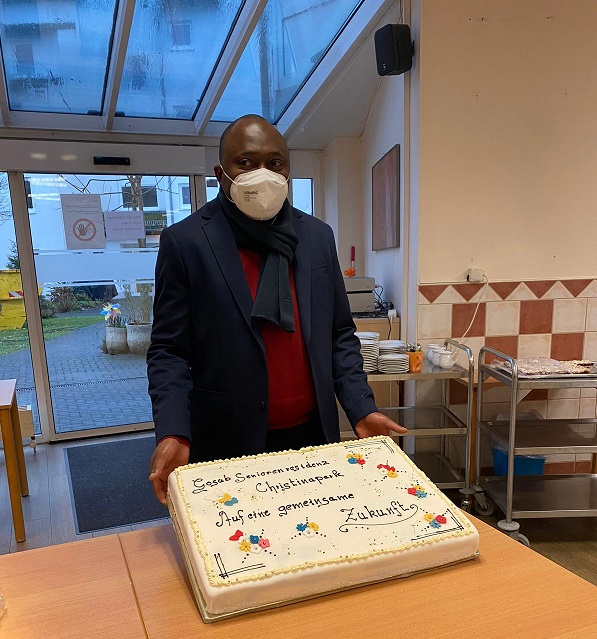
Most importantly it’s to help create awareness among our people that old people’s homes could also be a solution for elderly Africans in Germany.
Believe me, our people are getting older in Germany and most would not be going home again as planned due to one health condition or the other. It is therefore very important that we have people in the system that can render the necessary advice when needed; people that understand our culture and our way of life.
What does it take to run a care home?
Mr Femi, it takes a lot. You are aware that I have been in the care sector in Germany for nine years now. I have been working towards opening a care home for the past two years, so when the opportunity came, I utilized it.
But establishing a care home in Germany is at another level. From applying for clearance at the local care home regulatory body (Heimaufsicht) to negotiating a care agreement (Versorgungsvertrag) with the regional association of the public healthcare insurance companies and so many other procedures and protocols. And you must deal with the German laws in this area [care profession] as well.
It was very stressful and time consuming. But, at the end, God being on our side, we succeeded.
My thanks go to the Pulheim local authorities, the Mayor, Mr Keppeler, Mrs Britta Meyer, who is head of the IKK Classic NRW, and my wonderful team headed by Mrs Bresin.
What has been your experience since taking over the Gosab Seniorenresidenz Christinapark?
It has not been easy, but thanks to my experienced management and all the employees. After nine months, we can be happy with the results recorded so far – 98% occupancy rate of the home, meaning we are always fully booked, and 90% customers satisfaction.
We can look back and say we are on the right track. We still have things to do though. Our priority is the day-to-day care of our elderly inmates at the Gosab Seniorenresidenz Christinapark and in all our Gosab locations.
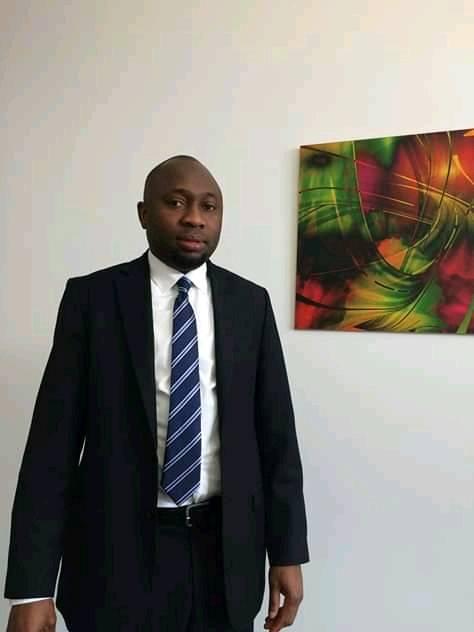
Labour market experts say there is a shortage of about 200,000 care workers in nursing homes and hospitals in Germany. How has this shortage affected your operations?
Shortage of workers is a very big problem in Germany. We have our way of dealing with the situation; we offer our workers incentives that other companies can’t offer them.
What are the incentives that you offer them?
I can’t mention them. They’re company’s secrets. (laughs)
Where do your workers come from?
We have workers from Africa, Germany, Eastern Europe and presently we are working with a company in Albania to help us recruit from the Balkan countries.
You spoke about the Gosab Care Franchise System when we interviewed you last year. Has it given more Africans living in Germany the opportunity to join the care profession?
Due to the establishment of our care home in February, I decided to delay the commencement of the Gosab Care Franchise System. But since July, my project team and I have been working on that project again and by God’s grace we will welcome a partner of African origin early next year.
About 10,000 care workers immigrate to Germany every year due to the shortage in the sector. How could Africans living in Africa come here to work as carers?
We have two categories of care workers immigrating to Germany. Qualified Nurses and Nursing or Care Assistants. Qualified nurses are allowed to come to Germany if they meet all the necessary requirements, such as German language proficiency of up to B2, and they will have to go through the equivalency assessment procedure (Gleichwertigkeitsfeststellungsverfahren) etc.
The nursing or care assistants can only come through the German Trainers program for 3 years. The requirements include German language certificate of up to B2/C1, a contract with the trainer school and a working contract from a care company in Germany.
There is no short cut to Germany and I will never deceive my people. The only way is to learn German language in Nigeria or Africa. Search for an employer that’s willing to process your documents by offering you a working contract. That’s the way to go.
Femi Awoniyi
More about the Gosab Seniorenresidenz Christinapark at: http://www.gosab-seniorenresidenz.de
READ ALSO The African making a difference in Germany’s care sector
 THE AFRICAN COURIER. Reporting Africa and its Diaspora! The African Courier is an international magazine published in Germany to report on Africa and the Diaspora African experience. The first issue of the bimonthly magazine appeared on the newsstands on 15 February 1998. The African Courier is a communication forum for European-African political, economic and cultural exchanges, and a voice for Africa in Europe.
THE AFRICAN COURIER. Reporting Africa and its Diaspora! The African Courier is an international magazine published in Germany to report on Africa and the Diaspora African experience. The first issue of the bimonthly magazine appeared on the newsstands on 15 February 1998. The African Courier is a communication forum for European-African political, economic and cultural exchanges, and a voice for Africa in Europe.


































